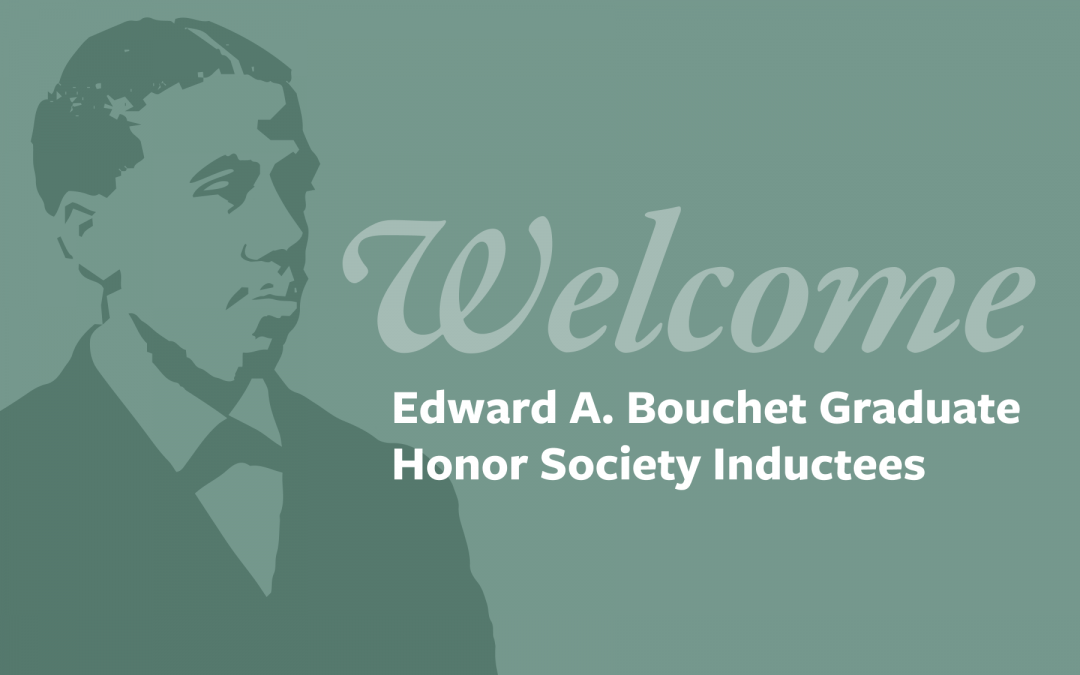Ten Rackham students will be inducted into the Edward Alexander Bouchet Graduate Honor Society this year. Named for the first African American doctoral recipient in the United States, the Bouchet Society recognizes outstanding scholarly achievement and promotes diversity and excellence in doctoral education and the professoriate.
The Bouchet Society is a network of preeminent scholars who exemplify academic and personal excellence, foster environments of support, and serve as examples of scholarship, leadership, character, service, and advocacy for students who have been traditionally underrepresented in the academy.
In the spirit of Bouchet’s commitment to these ideals, the 2024 Bouchet inductees representing the Rackham Graduate School’s society chapter have all demonstrated significant achievement in these five areas.

Brittany Ribeiro Brown
Brittany Ribeiro Brown is a joint Ph.D. candidate in social work and psychology at the University of Michigan. Her work focuses on the impact of racism and intersectional oppression on Black youth’s mental health. Her work underscores the resilience strategies Black youth employ and the significance of culturally specific interventions for well-being. Brittany earned a master’s degree in social work at Columbia University and a bachelor of arts in sociology from Pepperdine University.

Ariana Bueno
Ariana Bueno is a Ph.D. candidate in the applied physics program at the University of Michigan. She conducts her research in the Department of Climate and Space Sciences and Engineering on instrumentation to study plume surface interactions on the moon. Ariana is a NASA Glenn Research Center Fellow, she completed her master’s in space engineering with a concentration in instrumentation and is pursuing a graduate certificate in Latina/o studies focusing on Latinx representation in STEM fields.

Bahaar Chawla
Bahaar Chawla is a Ph.D. candidate in molecular, cellular, and developmental biology. Her research focuses on structural maintenance of chromosome proteins and their role in regulating gene expression. Bahaar is an avid educator, championing student-centered teaching and mentoring in the classroom and research lab. She led her department’s DEI committee for three years, where she created foundational structures and advocated for initiatives, including the HORIZONS undergraduate research program, which is a funded summer research program.

Kimberly K. Diaz Perez
Kimberly Diaz is a postdoctoral fellow in Dr. Vivian Cheung’s lab. Her research focuses on investigating how the RNA sequence and structure affect gene expression and function. She received her Ph.D. in genetics and molecular biology from Emory University, where she was a Howard Hughes Medical Institute Gilliam Fellow. Kimberly is an avid advocate for individuals from underrepresented communities in STEM and strives to become a research scientist dedicated to developing therapeutics for human diseases.

Oluwami Dosunmu-Ogunbi
Oluwami (Wami) Dosunmu-Ogunbi is a postdoctoral researcher in robotics at the University of Michigan. She specializes in stair climbing algorithms for bipedal robots and holds numerous awards and distinctions including the GEM Fellowship, Rackham Merit Fellowship, and the MLK Spirit Award. Wami holds a Ph.D. and two master’s degrees from the University of Michigan and a bachelor’s from the University of Illinois Urbana-Champaign. Committed to mentoring future engineers, she aims to become a professor.

Raúl Gámez
Raúl Gámez is a Ph.D. candidate in higher education at the Center for the Study of Higher and Postsecondary Education, University of Michigan, where he also received a master of arts in higher education administration. He holds a bachelor of arts in theater arts and translation and interpretation studies from California State University, Long Beach. His research focuses on understanding organizational behavior and organizational change in higher education, mainly related to diversity, equity, and inclusion.

Kassidy M. Jungles
Kassidy M. Jungles is a Ph.D. candidate in pharmacology at the University of Michigan, where she studies breast cancer therapeutics. Kassidy is a CEW+ scholar, an Undergraduate Research Opportunity Program Outstanding Research Mentor, a Rackham Merit Fellow, and a T32 Pharmacological Sciences Training Program trainee. She earned her bachelor of science degree in biology from Saint Mary’s College of Notre Dame. Kassidy is passionate about increasing the inclusion of underserved groups in STEM.

Parker Miles
Parker Miles is a Virginian languishing in Michigan until his Ph.D. is conferred in May. He studies Black youth technology cultures and the mutual constitution of Black folks’ online and offline selves. In his dissertation study, a critical ethnography of a student-designed after-school makerspace, he uses theory from science and technology studies and Black studies to make sense of Black youths’ “cyborg literacy” practices. He leaves the University of Michigan with three sole-author publications.

Maribel E.K. Okiye
Maribel E. K. Okiye, a dual degree Ph.D. and M.S. student at the University of Michigan in chemistry and computational medicine and bioinformatics, hails from the U.S. Virgin Islands. With a B.S. in biochemistry from the Catholic University of America, Maribel’s research focuses on the human microbiome’s impact on health. Her groundbreaking work on the oral microbiome’s role in cancer development earned her prestigious awards, including the National Science Foundation’s Graduate Research Fellowship. Committed to diversity and inclusion in STEM, Maribel mentors students and co-founded initiatives like the Chemical and Biological Science Recruitment Initiative. Her ultimate goal is to become a tenure-track professor leading in omics-based human microbiome research while championing diversity in academia.

Cecilia Solís-Barroso
Cecilia Solís-Barroso, a Ph.D. candidate in linguistics at the University of Michigan, specializes in bilingualism and language contact, with a focus on Spanish-English and Nahuatl-Spanish communities in Mexico and the U.S. Her goal is to challenge harmful language ideologies, emphasizing the value and complexity inherent in all languages. Supported by grants such as the Research for Indigenous Social Action and Equity Grant, her research is published in esteemed journals like Frontiers in Psychology.

